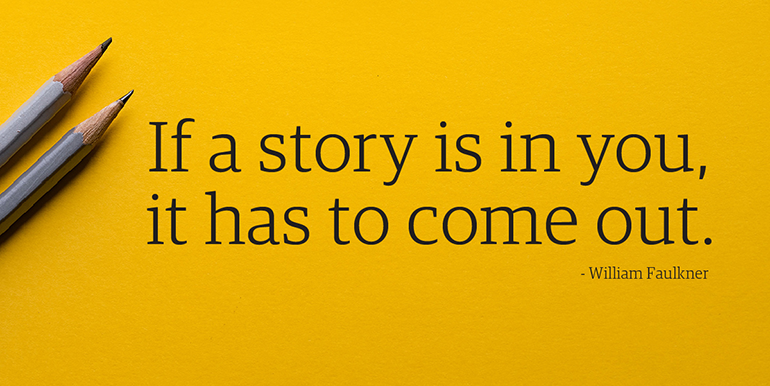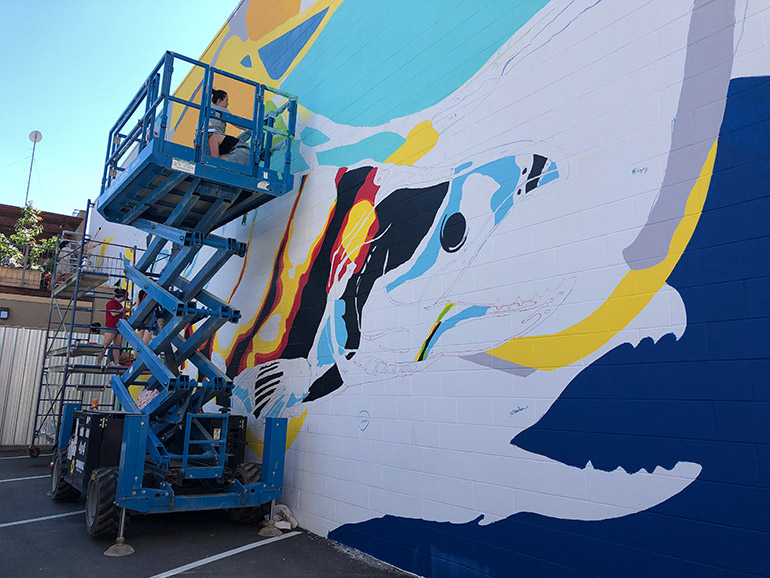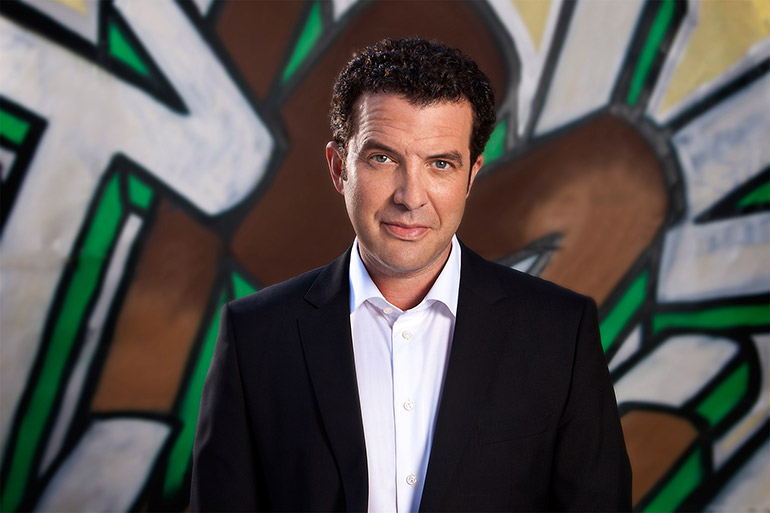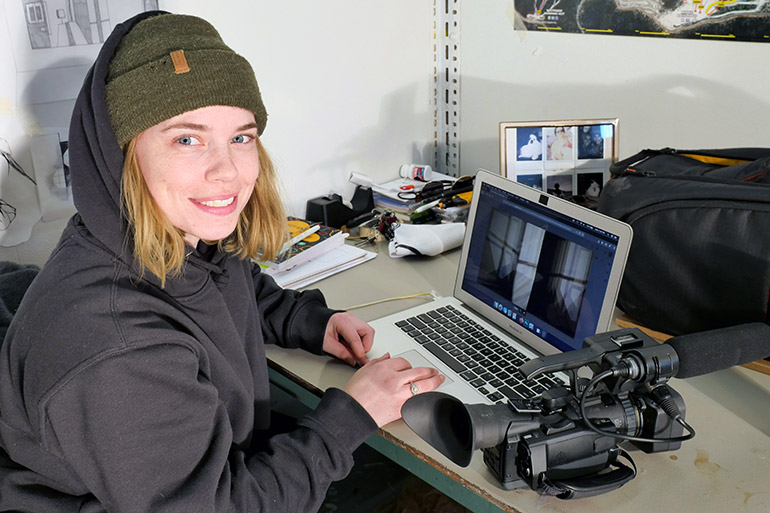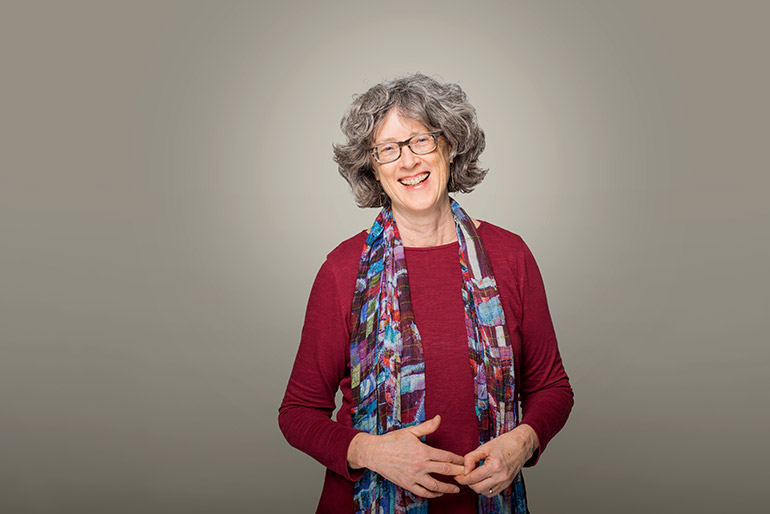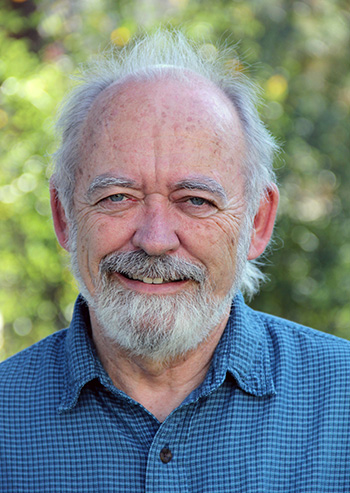Visual artists, writers and performers can spend a month at the Woodhaven Eco Culture Centre
UBC Okanagan’s Faculty of Creative and Critical Studies (FCCS) is launching a new opportunity for artists, writers and performers to spend some creative time in a wooded retreat.
The FCCS Woodhaven Artist-in-Residence program provides a paid residency opportunity that is open for Canadian and international artists to stay between four-to-eight weeks at the Woodhaven Eco Culture Centre in the summer.
Woodhaven includes a large heritage home with three self-contained apartments and a studio cabin on a large parcel of heavily-wooded parkland neighbouring Bellevue Creek. For years, FCCS has invited artists, writers and scholars to come to UBC Okanagan and work with the students, faculty and community members during the academic year.
This new program creates another dedicated opportunity for acclaimed artists and writers to work with the FCCS community during the summer months, explains Dean Bryce Traister.
“This residency program will give our visitors uninterrupted time and space to live and create in a beautiful nature conservancy. This is an experience that can foster and accelerate artistic process and creation, and we are excited about the people we will get to work with in the coming years,” he says.
The 2021 season will be reserved for writers of all genres. The FCCS faculty will invite writers to apply for a paid Woodhaven Eco Culture Residency and one writer will be chosen for the residency.
The selected writer will be expected to spend time on their own writing and spend part of their time on public outreach. This residency includes accommodation in the large two-bedroom home located at the Woodhaven Eco Culture Centre as well as full use of a writing studio on the property.
“Having time to work with and learn from other artists and writers from outside of our community allows us all to develop professionally and broaden our experience with arts and culture,” says Nancy Holmes, FCCS creative writing professor.
“We are also excited about the potential creative and critical encounters between the visiting writer and the Summer Indigenous Intensive program, a month-long residency that gathers artists, curators, writers and scholars to engage in contemporary ideas and discourse, and is a place for new ideas rooted in Indigenous art-making.”
Applications for the residency are now open and will be accepted until March 5. For more information on the application and the residency, visit: fccs.ok.ubc.ca/artist-in-residence
About the Woodhaven Eco Culture Centre
The Woodhaven Eco Culture Centre is located at 969 Raymer Road, in Woodhaven Nature Conservancy Regional Park. 3.5 hectares of the Regional District of Central Okanagan has been designated for conservation of wild animals and their habitat. It is part of a vital wildlife corridor along Bellevue Creek which flows down from Myra Bellevue Provincial Park.
Through an agreement with the Regional District, FCCS manages a large heritage home with three self-contained apartments, providing opportunities for FCCS graduate students to live during the academic year and a place for visiting artists and scholars to stay during the summer months. There is a small studio cabin on the property—an ideal place to hold seminars, small retreats, art projects, events and meetings.
About UBC’s Okanagan campus
UBC’s Okanagan campus is an innovative hub for research and learning founded in 2005 in partnership with local Indigenous peoples, the Syilx Okanagan Nation, in whose territory the campus resides. As part of UBC—ranked among the world’s top 20 public universities—the Okanagan campus combines a globally recognized UBC education with a tight-knit and entrepreneurial community that welcomes students and faculty from around the world in British Columbia’s stunning Okanagan Valley.
To find out more, visit: ok.ubc.ca

